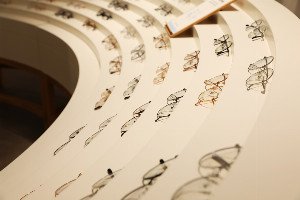Monica Zavattaro
Ripensare l'Africa. La collezione di Ernesto Brissoni al Museo di Antropologia e Etnologia di Firenze
Introduction
Ripensare l'africa. La collezione di ernesto brissoni al museo di antropologia e etnologia di firenze. La collezione Brissoni dal Congo, esposta al Museo di Antropologia di Firenze, necessita una rilettura moderna. Questo studio propone una museografia decoloniale per valorizzare gli artefatti africani.
Abstract
Among the thousands of objects from the African continent that came to the museum in the colonial era, Ernesto Brissoni's collection from the Congo deserves particular attention. Due to the quality of the works of the collection, it has repeatedly arousedthe interest of scholars and curators of exhibitions in Italy and abroad. The collection is currently on display along the Florentine Museum's tour itinerary. Indeed, it is part of a very dated exhibition dedicated to Central Africa, characterized by a museographyno longer adequate for its best valorisation. This study is a preliminary report aimed towards a more modern rereading of this collection and a rethinking of its future exhibition. This study also in takes into consideration the meanings that the artefacts haveassumed in the contexts of the research and exhibitions of which they were protagonists. It is necessary that any exhibit answers more fully to the needs requested by a multicultural society which interprets objects from a decolonialisation perspective.
Review
The article, "Ripensare l'Africa. La collezione di Ernesto Brissoni al Museo di Antropologia e Etnologia di Firenze," addresses a critically important subject in contemporary museology: the re-evaluation of colonial-era ethnographic collections. Focusing on Ernesto Brissoni's collection from the Congo, housed at the Florentine Museum, the study immediately establishes the significance of its subject matter. The abstract highlights the collection's exceptional quality, which has consistently drawn the attention of scholars and curators, underscoring its historical and artistic value and positioning it as a prime candidate for scholarly re-engagement. However, the abstract candidly reveals that despite its intrinsic value, the collection is currently presented within a "very dated exhibition" and a "museography no longer adequate for its best valorisation." This observation sets the stage for the core purpose of the study: a "preliminary report aimed towards a more modern rereading" and a "rethinking of its future exhibition." The proposed approach is commendable, emphasizing not only the re-contextualization of the artifacts themselves but also a consideration of the "meanings that the artefacts have assumed in the contexts of the research and exhibitions of which they were protagonists." Crucially, the authors commit to an exhibition framework that "answers more fully to the needs requested by a multicultural society which interprets objects from a decolonialisation perspective." This article therefore represents a timely and essential contribution to the ongoing discourse surrounding the decolonization of ethnographic museums and the ethical display of cultural heritage. By foregrounding the necessity of a decolonial lens and acknowledging the demands of a multicultural society, the authors demonstrate a forward-thinking approach to museum practice. While a preliminary report, it lays vital groundwork for re-engaging with complex colonial legacies and transforming institutional narratives. This study promises to inform not only the future presentation of the Brissoni collection but also to serve as a valuable case study for other institutions grappling with similar challenges, making it highly relevant to current academic and curatorial debates.
Full Text
You need to be logged in to view the full text and Download file of this article - Ripensare l'Africa. La collezione di Ernesto Brissoni al Museo di Antropologia e Etnologia di Firenze from Archivio per l'Antropologia e la Etnologia .
Login to View Full Text And DownloadComments
You need to be logged in to post a comment.
Top Blogs by Rating
Beyond the Blueprint: Why Your...
By Sciaria
Unlocking Life's Source Code:...
By Sciaria
Your Digital Shadow: What Stat...
By Sciaria
Favorite Blog
Phantom Power: Unmasking Your...
By Sciaria
Beyond the Blueprint: Why Your...
By Sciaria
Your DNA's Ancient Story: Unlo...
By Sciaria
Related Research
Implementation of discrete wavelet transform and directed acyclic graph svm for batik pattern recognition
Implementasi dan analisis alat kompres demam suhu hangat dengan sensor ds18b20 dan pengendali arduino uno
Channel planform changes of the lower calore river, southern italy (1870-1998)
Share
Notice Board
- METODE BARU PERHITUNGAN VISKOSITAS INTRINSIK DAN BERAT MOLEKUL POLIHIDROKSIALKANOAT UNTUK PRODUKSI PLASTIK BIODEGRADABLE
- PERTUMBUHAN AGLONEMA SP. VARIETAS RED BORJU SECARA IN VITRO DENGAN PENAMBAHAN BAHAN ORGANIK BAWANG MERAH (ALLIUM CEPA) DAN TAOGE (PHASEOLUS RADIATUS)
- L’ABBAZIALE DI SANTA MARIA DI FONTELAURATO: CRONOLOGIA, ARCHITETTURA E INQUADRAMENTO NELL’AMBITO DELLE PRIME FONDAZIONI FLORENSI




